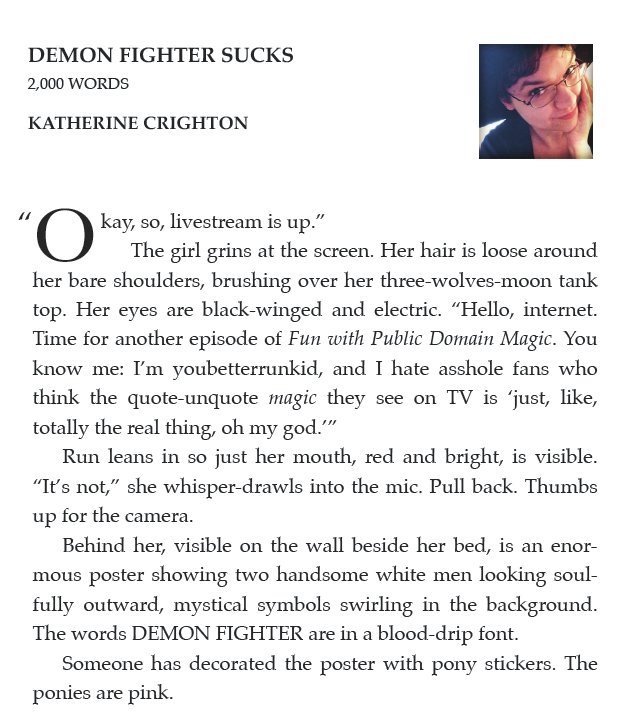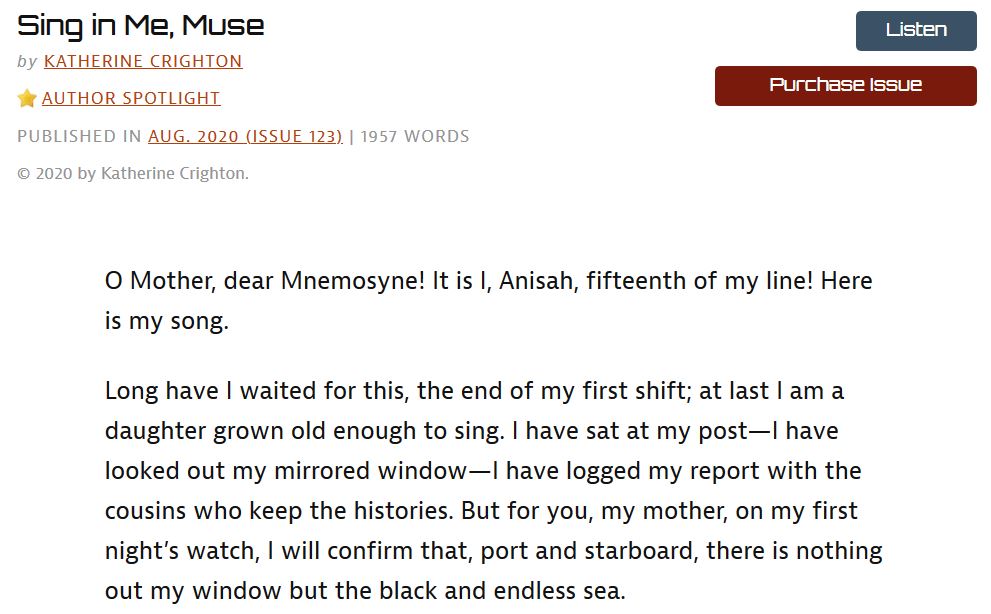What do you really want to accomplish with your fiction? Figure that out now — here are a few potential options:
- Get paid at a professional rate
- Get paid anything
- Appear in prestigious markets
- Get a publishing credit
- Have people read my work2
If all you want is to have people read your work? My friend, there are plenty of places to post for free, such as Wattpad and Archive of Our Own. You can even self-publish fairly easily and likewise for free through a variety of distributors like Lulu, Smashwords, or Amazon. If all you want is to reach the masses, the masses are out there waiting for you.
Likewise, if you want just a writing credit, any credit at all, from someone other than yourself– there are markets out there that can’t afford to pay their writers but are hungry for content.3 If it seems scary to approach the big-name mags, or if you’re trying to get into the swing of writing and submitting fiction regularly, these can be good places to send your work. You might even get on the ground floor of an up-and-coming wunderkind, or at the very least a place that promotes you well and is great to work with.
Now, me, I value getting paid at a professional rate, followed by appearing in prestigious markets, followed by getting paid anything. That means that for me, I’m likely to prioritize sending my finished fiction out to the big-name magazines first, though I keep an eye on the smaller zines that don’t pay particularly well (or at all), but which have a strong editorial eye and are well-respected by the field.4 If I can’t make it to one of the big-names, or a well-paying anthology, then I trunk the story for later — but that’s because I know what I value. Figure out what you value, and you’ll have a game plan for the next steps.
2 You’ll note that none of those are “become hugely famous” — that’s not a goal that you can predict or easily reach. The others are.
3 But beware the markets that can’t afford to pay you but instead require that you pay them, as well as ones that request you sign predatory contracts. Some good reading on this topic: John Scalzi’s post “Yog’s Law and Self-Publishing,” and SFWA’s entire Contracts information page.
4 How can you tell if a smaller zine is worth watching? Check where “best of the year” stories are coming from, as well as ones that are nominated for awards. You might find markets that don’t pay but that are clearly worth shooting for.



















